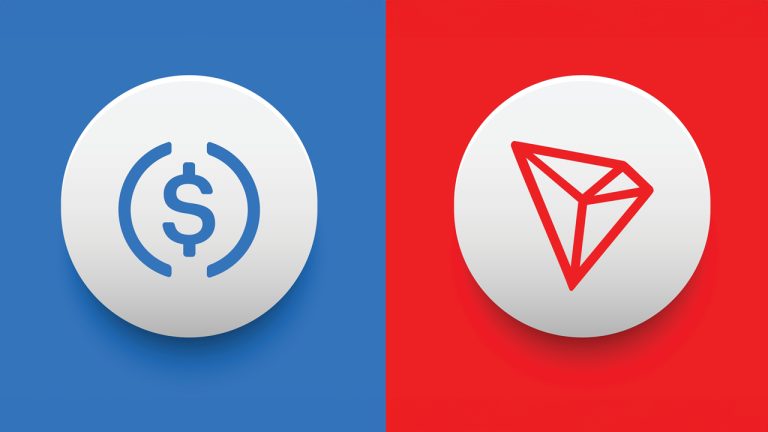 The Indonesian Finance Ministry has been called upon to assess the implementation of cryptocurrency taxes by the nation’s Commodity Futures Trading Supervisory Agency. In the past few months, Indonesia’s revenue from crypto-based transactions has been surpassing that generated from fintech businesses. Crypto Industry Generates More Revenue than Fintech Companies Indonesia’s Commodity Futures Trading Supervisory Agency […]
The Indonesian Finance Ministry has been called upon to assess the implementation of cryptocurrency taxes by the nation’s Commodity Futures Trading Supervisory Agency. In the past few months, Indonesia’s revenue from crypto-based transactions has been surpassing that generated from fintech businesses. Crypto Industry Generates More Revenue than Fintech Companies Indonesia’s Commodity Futures Trading Supervisory Agency […] The Digital Euro Association (DEA) has entered into a partnership with the HBAR Foundation. This collaboration aims to bolster its comprehension of central bank digital currencies (CBDCs) and stablecoins. Although this partnership marks a significant milestone in the digital currency landscape it nevertheless does not amount to an endorsement of any ideologies or products. Enhancing […]
The Digital Euro Association (DEA) has entered into a partnership with the HBAR Foundation. This collaboration aims to bolster its comprehension of central bank digital currencies (CBDCs) and stablecoins. Although this partnership marks a significant milestone in the digital currency landscape it nevertheless does not amount to an endorsement of any ideologies or products. Enhancing […] The digital yuan, China’s central bank digital currency (CBDC), is being used as a security element in car prepurchase payment settlements. According to local media reports, a pilot test that allows customers to pay for their cars with digital yuan was established in early February in Shenzhen, and several customers are already purchasing their vehicles […]
The digital yuan, China’s central bank digital currency (CBDC), is being used as a security element in car prepurchase payment settlements. According to local media reports, a pilot test that allows customers to pay for their cars with digital yuan was established in early February in Shenzhen, and several customers are already purchasing their vehicles […] The U.S. financial technology firm Circle said on Feb. 21 that it will discontinue support for USDC on Tron blockchain. The move comes just a few months after Circle refuted allegations that it was Tron blockchain founder Justin Sun’s bank. Despite discontinuing support for USDC on Tron, Circle said it is still committed to growing […]
The U.S. financial technology firm Circle said on Feb. 21 that it will discontinue support for USDC on Tron blockchain. The move comes just a few months after Circle refuted allegations that it was Tron blockchain founder Justin Sun’s bank. Despite discontinuing support for USDC on Tron, Circle said it is still committed to growing […] Vella Finance, a Nigerian fintech startup, was recently bought by the microfinance bank Carbon. The acquisition of the fintech startup paves for Carbon to launch a new banking platform targeting Nigerian businesses. New Business to Leverage Artificial Intelligence The Nigerian microfinance bank, Carbon, has reportedly acquired the fintech firm Vella Finance for an undisclosed amount. […]
Vella Finance, a Nigerian fintech startup, was recently bought by the microfinance bank Carbon. The acquisition of the fintech startup paves for Carbon to launch a new banking platform targeting Nigerian businesses. New Business to Leverage Artificial Intelligence The Nigerian microfinance bank, Carbon, has reportedly acquired the fintech firm Vella Finance for an undisclosed amount. […]
Cointelegraph Accelerator welcomes Web3-friendly fintech platform Renegade to its program.
As the crypto industry continues to grow, it becomes increasingly intertwined with traditional finance (TradFi) to the benefit of end users. TradFi is notoriously slow, inefficient and expensive. International wire transfers, which take days and double-digit dollar fees in most cases, are a perfect embodiment of the current state of traditional finance.
By comparison, decentralized finance (DeFi) has the potential to provide similar services, including fund transfers, payments and storage, much quicker and at lower costs. However, the majority of financial technology (fintech) applications offered by TradFi services win the users in terms of user experience and simplicity, leaving the unnecessarily complex and obscure DeFi apps with limited adoption.
Mainstream users require a friendly experience and easy-to-use applications to dip their toes in decentralized waters before becoming full-fledged crypto users. Similarly, DeFi users need a bridge to utilize their crypto funds in their everyday lives. They seek a fintech solution that is free from the complexity, logginess and expensiveness of traditional finance services.
Renegade, a Web3-ready financial services platform, aims to bridge TradFi features with crypto and DeFi by providing users with a clean, easy-to-use interface through its mobile apps developed for iOS and Android.
On top of a standard TradFi experience, which includes payment solutions, an IBAN account and personal finance management, Renegade adds Web3 functions, including a non-custodial and custodial wallet, fiat on-ramp through a Visa debit card, and crypto exchange — bringing the DeFi and TradFi spaces together.
Key crypto industry players such as crypto exchanges and wallet providers integrate with the Renegade platform to offer their solutions in a more TradFi-friendly environment. As more partners join the Renegade platform, users will be able to use a diverse range of direct, in-app conversions and enhanced liquidity options.
On the fintech side, the company is building RenegadePay and preparing a Renegade Visa debit card. Both will give users the ability to spend crypto in everyday shopping. Renegade users will also get a Swedish IBAN number thanks to a partnership with EMI Intergiro, opening up a range of traditional banking services and also a very attractive spending rewards programme.

Renegade provides users with a Visa debit card, which can be used for crypto payments. Source: Renegade
Talking about the vision of the company, Renegade CEO Daniel A. Strele-Ramonis explained that the team aims to dissolve the barriers between fiat and crypto, offering everyone the tools to harness the full spectrum of financial opportunities. “As the future unfolds, we aspire to lead this fusion, ensuring that financial empowerment is accessible, intuitive, and without compromise,” he added.
Renegade has joined Cointelegraph Accelerator as a participant to benefit from the media reach and marketing opportunities provided by the program. Cointelegraph Accelerator selected Renegade given the user experience the project is developing for both TradFi and DeFi users.
The platform aims to integrate with major payment services, including Apple Pay and Google Pay, by the end of the year. When its mobile app is launched, Renegade can serve the TradFi needs of DeFi users while providing access to crypto and Web3 for the fintech market, effectively bridging the two worlds.

Sixteen startups selected from over 1000 applications will present their projects to a global audience.
Cointelegraph Accelerator, a startup booster that leverages Cointelegraph’s capabilities as a media and strategic partner, announced its second cohort launching in October 2023 for up-and-coming Web3 startups.
Selected from over 1000 startup applications, the 16 participants of the second cohort of the Cointelegraph Accelerator program represent a wide array of Web3 verticals, including decentralized finance (DeFi), fintech, wallets, entertainment, social, and GameFi.
By joining Cointelegraph’s accelerator program, Web3 startups will get marketing strategy expertise, access to Cointelegraph media products, and mentorship programs with industry experts on key start-up development topics, including token design, fundraising, legal frameworks, liquidity management, security, etc. The participants will also benefit from access to Cointelegraph’s broad network of investors, foundations, infrastructure partners, and other industry leaders.
The current cohort of the Cointelegraph Accelerator program consists of 16 Web3 startups focused on bringing innovation to the biggest sectors in the blockchain space. Find out more about them below:
In a world where traditional and decentralized finance coexist, bridging the gap between them is crucial. The latest Cointelegraph Accelerator participants focused on DeFi services are pioneering solutions to enhance accessibility, transparency, and efficiency, thus redefining trading and personal finance management for mainstream users.
Changex is a personal finance mobile app that aims to bring traditional finance users to Web3 by combining centralized and decentralized finance on a single screen. As an all-in-one self-custody wallet solution, Changex offers crypto swapping, buying, selling, and staking. The platform has 2,500 monthly active users (MAU) with over $3 million in staked assets.
CryptoRobotics is a crypto trading platform with advanced tools aimed at bringing the crypto community together. Users can utilize the signals and trading strategies coming directly from professional traders and analysts, who, in return, can earn investor rebates for providing their strategies. The platform leverages trading robots powered by smart algorithms with risk management systems to enable automated trading. The team reached over $1 billion in trading volume in 2022 with over 50,000 registered users.
Clip Finance is a DeFi protocol that aggregates and benefits from the investment strategies available to the mainstream audience and other protocols. Users can deposit their stablecoins with a single click and get yield from a pool of various DeFi protocols, including Aave, Thena, Stargate, and Biswap. The platform aims to simplify the creation of risk-analyzed yield portfolios and is currently preparing for the main launch based on feedback from the private beta phase.
Renegade is bridging the gap between traditional banking and cryptocurrencies. The user-friendly platform offers both a full IBAN account and a Visa card, allowing users to pay in top cryptocurrencies like BTC and ETH effortlessly. A central product element is the noncustodial wallet, ensuring users maintain full control over their crypto assets. After a promising beta test with 2,500 users, the company is gearing up for an open market launch in Q4 2023.
MC² Finance is a noncustodial, cross-chain token strategy platform. It aims to democratize access to on-chain crypto wealth management through easy-to-use tools and access to aggregated crypto portfolio strategies with a user-friendly UI. The European-based MC² Finance team aims to launch its mainnet after hosting over a thousand users during the platform’s testnet.
Nolus is a semi-permissioned, blockchain-powered platform that bridges lenders and borrowers in a DeFi money market. With its DeFi Lease, borrowers can secure 3x leveraged yield-generating capital. Inspired by traditional leasing, where one pays a fraction upfront and gains ownership after repayment, Nolus' approach cuts down the DeFi sector's high overcollateralization standards, which boosts capital efficiency and offers borrowers better loan terms.
Velvet Capital is a DeFi platform on the BNB Chain that helps create and manage on-chain funds and structured products. Asset managers can create portfolios of digital assets and mint synthetic tokens representing them. Users can invest in tokenized portfolios and earn yield from lending, staking, capital gains, or providing liquidity. The company offers a Web3 app for regular users and “DeFi-as-a-Service” (with SDK and APIs) for institutional clients. The platform has a live MVP with over 550 active investors.
WhiteList Zone is a marketplace where crypto investors and enthusiasts can buy “front-row seats” for upcoming Web3 projects. Its mission is to democratize the market of early Web3 investments in the most efficient and accessible way. Users can buy and trade whitelists, which grant exclusive rights to participate in launch events such as initial DEX offerings (IDOs). The platform hosts over 50 projects and over 7,000 whitelist submissions, attracting nearly 4,000 users.
Data sovereignty and security are paramount in the digital age. By offering decentralized data storage and robust digital asset management solutions, these projects ensure a seamless transition toward digital ownership and secure data management.
GhostDrive is a Web3 native data storage platform and user application on the InterPlanetary File System (IPFS) and Filecoin, a decentralized alternative to Google Drive where users can store, share, and access data. Users can join by logging in with MetaMask or the traditional email and password combination and start storing data in a decentralized cloud securely.
NGRAVE is the first complete solution for full control of digital assets, focusing on self-custody, maximum security, and ease of use. The hardware wallet, Ngrave Zero, is the world’s only financial product featuring a secure OS with the highest security certification: EAL7, developed with world-renowned cryptography and security experts. The company also offers its users a stainless steel encrypted backup for their keys and a mobile app to track their digital assets.
The conventional social media landscape often overlooks fair revenue distribution and user control. However, innovative platforms are being developed to merge social interactions with financial incentives, creating a more equitable social media ecosystem for both content creators and consumers.
Pop Social is an AI-powered social gateway to Web3. The platform explores a new approach to social media where users create and share their content, interact with each other, and get rewards with native Pop Tokens for active engagement with the app. AI algorithms are used in the content creation features and in the process of generating individual post feeds. Pop Social has already reached over 250,000 downloads on the App Store and Google Play Store and has over 40,000 daily active users.
ReadON is a social app with a Web3 sharing economy where content is owned by creators, and part of the ad revenue is distributed back to them. Creators earn tokens for sharing, users earn tokens for reading, and advertisers buy and burn tokens to place ads and access users' interests targeting data. The app has reached over 510,000 user registrations and app downloads, 45,000 daily active users, and over 563,000 content pieces.
GAMI is a Web3-focused venture builder that hosts a variety of products tailored to the blockchain industry. Gami’s flagship product is Midle, an all-in-one marketing platform that helps optimize user acquisition and community engagement, working with 100+ partners from the Web3 space. Midle has already reached over 22,000 unique users who have completed over 400,000 quests.
Exclusivity and a lack of verified talent pools hinder the growth of the Web3 domain. Some projects, however, are working on democratizing access to Web3 solutions and education, bridging the gap between academic institutions and the blockchain industry, and facilitating continuous innovation.
Talentre is a Web3 talent platform where users have access to blockchain education courses, events, certifications, and a traceable tokenized achievement system. At the same time, Web3 companies and projects get access to a verified talent pool. More than 50 universities have already partnered with Talentre, and the platform has reached over 170,000 registered wallets and over 50 business clients, including Circle, BNB Chain, Solana, and many others.
Monetization and user engagement are pressing challenges in the entertainment sector. By embedding blockchain technology in streaming and gaming platforms, these innovative projects are crafting a rewarding and engaging entertainment ecosystem for modern audiences.
Replay has developed a blockchain-powered streaming service called RewardedTV that empowers viewers and creators to take control of their video streaming experience. RewardedTV uses blockchain tech to reward viewers with digital tokens and collectibles to drive engagement. The platform has over 100,000 registered users, and more than 4,000 videos-on-demand (VOD) live TV channel options, with more partnered streaming apps on the way.
Fanton is a Web3 fantasy football game playable on Telegram and integrated with The Open Network (TON) blockchain. Similar to traditional fantasy sports games, which comprise a $25 billion market, the game allows players to create their dream team with NFT cards of soccer superstars and earn points based on the players’ real-life performances. The product has had a successful launch reaching more than 11,000 registered users to date.

Philippine-based crypto exchange Coins.ph says it is teaming up with fintech firm Circle to enable its 18 million Filipino users to enjoy better remittance services. In a statement, Coins.ph says stablecoin-denominated remittances enable fast, cheap and secure international money transfers. Circle is the company behind USDC, the second-largest stablecoin by market that aims to keep […]
The post Circle Partners With Fintech Company To Tackle the Philippines’ $36,100,000,000 Remittance Industry appeared first on The Daily Hodl.

The Bank of Latvia has been quietly stepping up its game in providing assistance to fintech projects while employing the latest emerging technologies internally.
Fintech innovations and emerging technologies have swept the world, causing global lawmakers to rush to understand and regulate them.
While some countries like the United States and El Salvador have had a public relationship with adopting new technologies, others have quietly joined the game. Among these is Latvia, a small country located in the Baltics, neighboring Estonia and Lithuania.
Cointelegraph spoke with Marine Krasovska, the head of financial technology at Latvijas Banka (Bank of Latvia) — Latvia’s central bank — to better understand how regulators in the country are dealing with new technologies like cryptocurrencies and artificial intelligence (AI).
Unlike its neighbor Estonia, which was the first European country to provide clear regulations and guidelines for digital currencies, these assets remain unregulated in the Latvian landscape. The Latvian Personal Income Tax Act defines crypto as a capital asset subject to the general capital gains tax of 20%.
Back in 2020, one of the country’s financial regulators, the Financial and Capital Market Commission (FCMC), warned the public about crypto fraud — particularly given that in Latvia, crypto companies “operate in an infrastructure that is currently characterized by lower regulation than in the financial and capital markets.”
Since early warnings from the FCMC, Latvia has not developed new cryptocurrency regulations. However, Krasovska explained that in the last five years, the central bank, which is the primary regulator in Latvia, has been operating its Innovation Hub.
Krasovska said participation by fintech companies is not mandatory; however, the bank advises it as a “first entry point” to the Latvian market. The central bank offers this service free of charge for international companies and those originating from Latvia.

“When businesses come to the Innovation Hub and begin to describe their business model, sometimes we start to understand what companies actually need and don’t need,” she said.
She added that it’s an opportunity for businesses to talk in person with regulators to understand the business licensing needed and get risks assessed.
“We always suggest for companies to bring a lawyer to disclose interpretation risks. Interpretation of legislation is a very high-level responsibility.”
Within the Innovation Hub, the bank has also created a pre-licensing process. According to Krasovska, this was created to help fintech companies — particularly those dealing with digital assets — create a “package of documents” that they can receive feedback on regarding the quality.
Related: Germany’s blockchain funding increases 3% amid market downturn: Report
“So when the official application goes in,” she said, “the license process will be focusing on the main ideas rather than the quality of the application. This new pre-licensing began last summer.”
“We want to see more innovation on the market. But we also want to see that the risks are managed in a proper way.”
Krasovska said that last year, the Innovation Hub had 72 consultations with around 40% of all participants from Latvia. She commented that the hub’s data reveals increased interest from companies in “crypto and electronic money institutions services.”
Along with helping businesses thrive in the Latvian fintech landscape, Krasovska said that the Latvian central bank itself is adopting new technologies to streamline its processes from the inside.
This includes moving central bank data into the cloud and adopting AI technologies like OpenAI’s popular chatbot ChatGPT.
“We, as a central bank, will also start this year to integrate artificial intelligence and ChatGPT in our work. Not just not just trying to do some kind of studies as everyone is using it, but we’re starting to adapt it in terms of we have identified our needs.”
She said the central bank created an internal lab two years ago, which began experimenting with different kinds of technological solutions.
Related: European Banking Authority calls for early adoption of stablecoin standards
She highlighted ChatGPT feasibility studies the bank has conducted, which will help it summarize large quantities of documents, such as tax documents that she called “not structured information.”
Krasovska also said the bank employs AI to help with data direction projects and supervise code.
When it comes to data, the fintech executive said the Bank of Latvia is spearheading a new project in relation to synthetic data.
She said that when newcomers or tech companies developing new solutions ask for a data set to train business models, it has nothing it can legally provide.
“This year and also next year, we will be working with the database ideas from which we can create this synthetic data that is like a synthetic lottery or something along those lines,” she said.
“Then companies can come and use these different types of data to understand how their tools work or don’t work before they scale the business and offer their solution to real customers.”
For example, businesses may need access to a large transaction database to understand how related monitoring tools work, “so what we’re doing right now is working on this integrated database,” she said.
Over the summer, a report from the Latvian central bank said that local investments in crypto assets had declined by 50% over the past year.
"The number of the people purchasing crypto-assets as well as making payments with payment cards to invest in crypto-assets in Latvia declines.
— Joshua Rosenberg (@_jrosenberg) August 4, 2023
This can be explained by global developments such as the negative sentiment of investors, detected cases of fraud and cases of… pic.twitter.com/uOIbJvIlsi
The report was based on findings from payment card usage, revealing that 4% of the population bought crypto assets in February 2023, compared to 8% in the same month of 2022.
When asked about the sentiment toward cryptocurrencies in Latvia, Krasovska pointed to the crypto market conditions in combination with slumping market trends globally: “Globally, the financial markets are the way they are right now, and of course, this is [excluding] the crypto [market].”
Magazine: Crypto lawyer Irina Heaver on death threats, lawsuit predictions: Hall of Flame
Aside from the rocky conditions for the crypto community brought on by the lingering bear market, regulatory difficulties in major markets have caused investor sentiment to become less optimistic.
However, Krasovska pointed toward the European Union’s adoption and implementation of the Markets in Crypto-Assets (MiCA) legislation as something the central bank can lean on.
“With the adoption of MiCA, we can ensure very high standards for financial services.”
Collect this article as an NFT to preserve this moment in history and show your support for independent journalism in the crypto space.

Sitharaman said crypto was a “threat as well as an opportunity” while confirming that the G20 members are working toward this vision of establishing a global crypto framework.
Under India's G20 presidency, active discussions around establishing a global framework for cryptocurrencies are underway, India’s minister of finance Nirmala Sitharaman has said.
On Aug. 28, Indian Prime Minister Narendra Modi pushed for global collaboration on formulating crypto regulations among G20 (Group of 20) member states, which include 19 countries and the European Union. Modi believes that emerging technologies — like cryptocurrencies — that have global impact should be accompanied by regulations and framework that is adhered to globally.
Sitharaman confirmed that the G20 members are working toward this vision of establishing global crypto framework during the Global Fintech Fest on Sept 5.

During the summit, Sitharaman said crypto was a “threat as well as an opportunity.” She highlighted the need for global co-operation to build a responsible financial ecosystem that can effectively help regulate cryptocurrencies worldwide. “Global co-operation is absolutely critical,” she added.
“In an inter-connected world, financial technology transcends broders, therefore, making cross-border partnerships absolutely crucial.”
Ever since India took over the G20 presidency in Q4 2022, the country consistently highlighted the need for global collaboration when it comes to financial security and stability. However, the finance minister confirmed that G20 members are together working on the the highly anticipated crypto regulations.
“India’s (G20) presidency has laid out issues related to regulating or understanding that there should be a framework for handling issues related to crypto assets. Active discussions are happening, content-rich papers from institutions like IMF, FSB, OECD are all being discussed on various issues.”
Sitharaman also confirmed that the International Monetary Fund (IMF) and the Financial Stability Board (FSB) have submitted their synthesis papers on cryptocurrency.
Related: India makes suggestions for G20 crypto roadmap
India’s rising interest in blockchain and crypto becomes more evident after the National Payments Corporation Of India’s (NPCI) recent job posting. NPCI, an initiative led by the Reserve Bank of India (RBI) and 247 Indian banking companies, is looking to hire a head of blockchain.

The ideal candidate will be a seasoned technologist with at least six years of experience in developing and implementing blockchain, who will be primarily tasked with identifying “avenues wherever blockchain-driven solutions can be used.”
Magazine: How to protect your crypto in a volatile market: Bitcoin OGs and experts weigh in